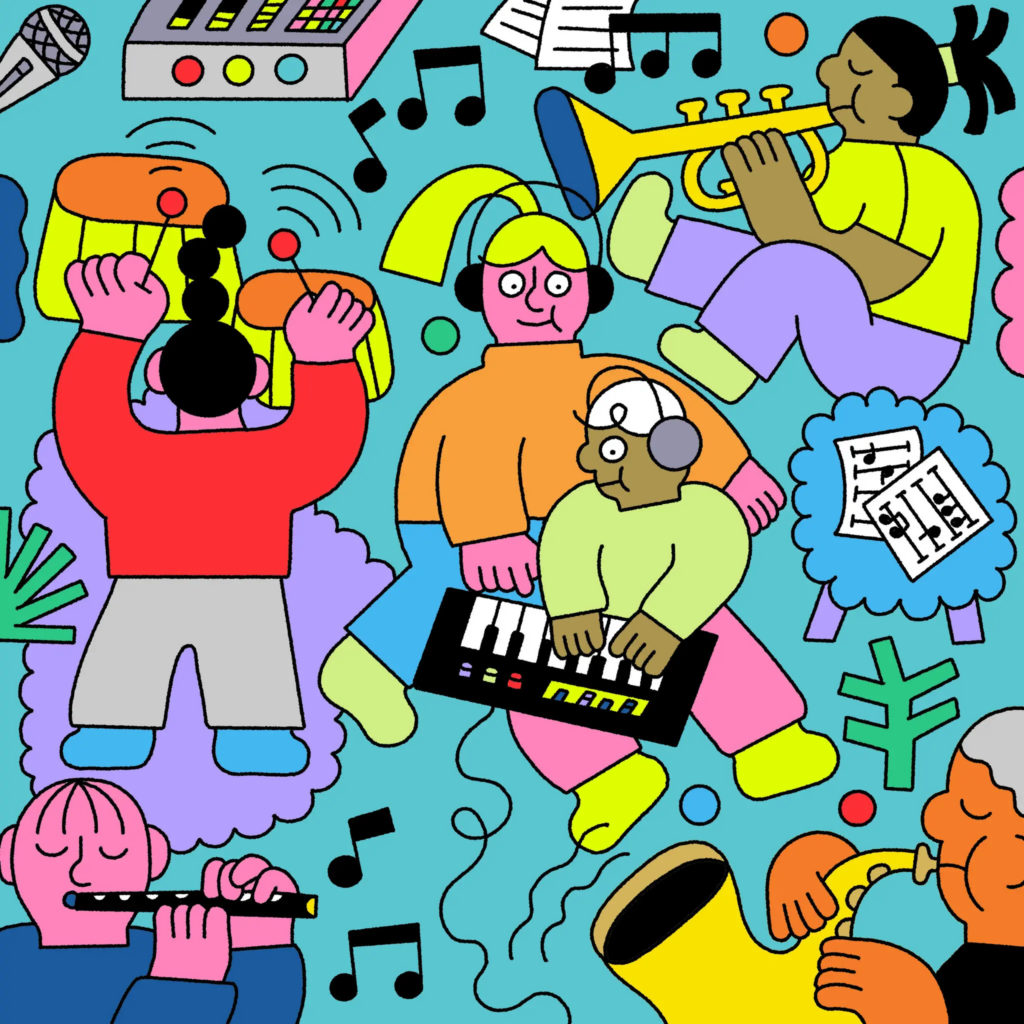Throughout this semester, I have gathered a wide range of research related to music education. I have read numerous articles and talked to users with real experiences within the field. The focus has been on the visual part connected to colors and symbols in musical notation, but also on music education as a discipline in general. I wanted to find out what works well, and what needs improvement. In my last blog post of the semester, I will try to summarize my findings so far.
I started my first blog post with this goal definition:
“The goal is to simply make music education more user friendly to newcomers.”
I wanted to make it easier for children and beginners to learn how to play an instrument. The idea was to work with the use of colors and symbols, to make music more fun and uncomplicated. I quickly realized that the discipline is complex, and I needed to broaden my scope to understand how to solve the right problem. After reading a guest essay from Sammy Miller, I understood that music education in general has some areas to improve.
Things I have learned
Sammy Miller made me comprehend the importance of music education. According to the Grammy-nominated drummer, studies show that students who play an instrument may have less anxiety and do better in English, science and math. Quoted directly from his essay: “The fact that many children don’t stick with music is bad news not only for the state of self-expression and joy but also for education.” (New York Times, 2023). It is important to clearly communicate these benefits to children that consider quitting music lessons. They should know what they are letting go of.
It is crucial to let music learners experiment and have fun. If it becomes too serious, it quickly turns demotivational. On the other hand, if the students enjoy playing, they will be more interested in practicing and unintentionally improve their skills. A lot of children think they need to work very hard and do boring exercises to be successful. The truth is that you could become a good musician just by having fun and playing around. Experimenting and improvising can lead to a higher sense of achievement, which is an important factor. Music teachers should encourage students to play around and not be afraid to be terrible. And acknowledge hard work.
Through my research, I also realized how important the social aspect is. Especially for children, sense of belonging is critical. If you are the only one in your family or friend group that plays an instrument, it could be hard to maintain motivation. Other activities such as football and handball offer a higher level of team spirit. I knew this in beforehand, but got surprised when understanding how big of an impact it really makes. I have been writing about pros and cons with digital music education, and the social situation is an important aspect to consider.
Conflicts – what makes people quit?
This became one of my big research questions. It seems like a lot of people quit music education because of a lack of time. This means that they find other activities more valuable. But why are they prioritizing football over piano lessons? Throughout my research, I found eight answers to this question. To a great degree, they summarize my learnings written in the paragraph above.
- Lack of social aspect
- Wrong difficulty level
- Too little focus on the benefits
- Time-consuming transportation
- Practicing becomes boring
- Too much focus on performance
- Low attention span
- It gets serious too quickly
– it is important to have fun and play around
Reference
Miller, S (2023). We’re Teaching Music to Kids All Wrong. The New York Times. Retrieved from https://www.nytimes.com/2023/09/23/opinion/teach-music-better.html
